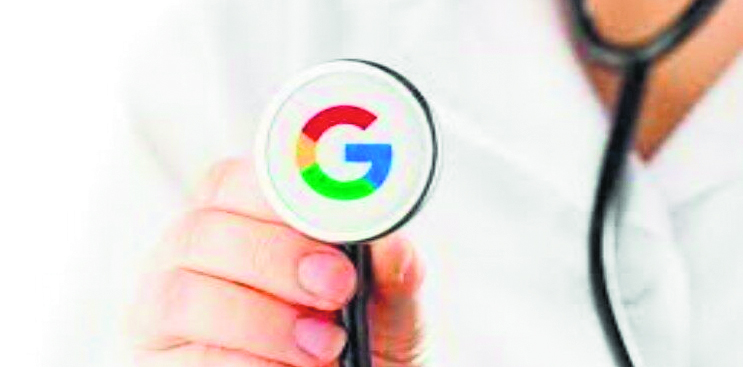
A new, and quite unflattering, term is now in vogue in medical circles – the ‘Idiot Syndrome’. While I am not a fan of such terminology, which some could even find offensive, the phrase does denote a serious issue. In this case, the acronym ‘I.D.I.O.T.’ stands for ‘Internet Derived Information Obstructs Treatment’. It describes the deleterious impact of relying on information obtained from the internet, which can be misleading and confusing, in order to diagnose and/or treat medical problems. This is fast becoming a difficult challenge for medical professionals, given that inaccurate or unreliable information gathered from the internet can actually obstruct compliance with legitimate and correct medical advice.
There can be no doubt that the internet is a storehouse of useful information. This includes information on diseases and medical conditions, as well as on pharmacological drugs and their side effects. The difficulty arises on account of the sheer volume, complexity and unreliability of the information available, which a mind untrained in medical science is unable to effectively comprehend or process. Any person attempting to correlate his/her own symptoms with information available online, without the help of a doctor, will, more often than not, arrive at a misdiagnosis. This can obviously have serious and dangerous consequences.
I have often told my patients that if they are to read online about the symptoms of just about any disease, chances are that they will end up convincing themselves that they are inflicted! This could lead to another condition, now dubbed as ‘Cyberchondria’ –the sense of dread or anxiety generated from information derived from the internet leading one to believe that one suffers from a particular disease. One could unnecessarily subject oneself to diagnostic tests, and fall prey to fear or even depression. Self diagnosis of a serious disease may even create stress and anxiety among loved ones.
I cannot emphasise enough the vital importance of professional experience and judgment, apart from education and training, which go to make a good doctor. It is through experience gained from years of hard work and daily labour that doctors hone the ability to zero-in on the important and tell-tale symptoms, while filtering out the less significant ones. As any trained doctor will testify, clinical skills and judgment play a crucial role in patient diagnosis and treatment –skills which no amount of rote information can ever replicate. It is not without good reason that the practice of medicine is referred to a science as well as an art; human judgment, not merely scientific facts and information, ultimately carries the day.
It sometimes becomes difficult even for an experienced doctor to clarify and satisfy an individual patient or his/her family. Such is the hold and power of what people colloquially refer to as ‘Dr. Google’! I do not, of course, blame the internet or any website or search engine. The benefits offered to mankind by these websites and platforms are immense. We must, however, as laypersons, learn to use these valuable resources judiciously.
The World Health Organisation has referred to the problem of an ‘Infodemic’, i.e. the rapid spread of a huge amount of information, often inaccurate, unreliable or misleading, which makes a solution more difficult to achieve. To quote from the website of the WHO itself (https://www.who.int/health-topics/infodemic#tab=tab_1) :
“An infodemic is too much information including false or misleading information in digital and physical environments during a disease outbreak. It causes confusion and risk-taking behaviours that can harm health. It also leads to mistrust in health authorities and undermines the public health response.”
The Covid Pandemic witnessed something resembling an infodemic, with doctors and hospitals having to periodically debunk myths and misinformation spread over various social media platforms.
Unfortunately, the problem is compounded by vested interests operating within our own profession. Some doctors and hospitals are prepared to exploit patient confusion and suggest multiple and unnecessary tests and investigations, at the cost of the patient and to their own pecuniary gain. A person not having the benefit of health insurance can sometimes find himself/herself liable for huge medical bills. India presents a unique set of challenges in this regard. Whatever be the legal provisions, it is not difficult in practice to purchase medicines from the local market without a valid prescription from a doctor. Without realizing the serious side effects, patients can over-medicate themselves, thereby creating further and serious complications through side effects. The reverse scenario also plays out on occasion, when a patient ignores a valid medical prescription and avoids taking medication for fear of side effects about which he/she has read online. This could easily result in the further progression of the disease and serious consequences.
Thus, while the internet is a treasure trove of information available at our fingertips, we must realise its limitations and boundaries and be cognizant of the pitfalls of its misuse. We will do well to remind ourselves that the information and material available online is too vast and unreliable for a layperson to be able to sift the grain from the chaff. While there is certainly no harm in gaining insights into one’s medical condition, it is of utmost necessity that we ultimately rely on, and trust, medical professionals. The internet can supplement their knowledge and efforts, but can never be a replacement. My strong and earnest advice is to check and verify every bit of information that one may derive from the internet with a medical professional. It is the only known method to avoid falling prey to the Idiot Syndrome!
KK Talwar, Chairman Heart Institute, PSRI Hospital, New Delhi